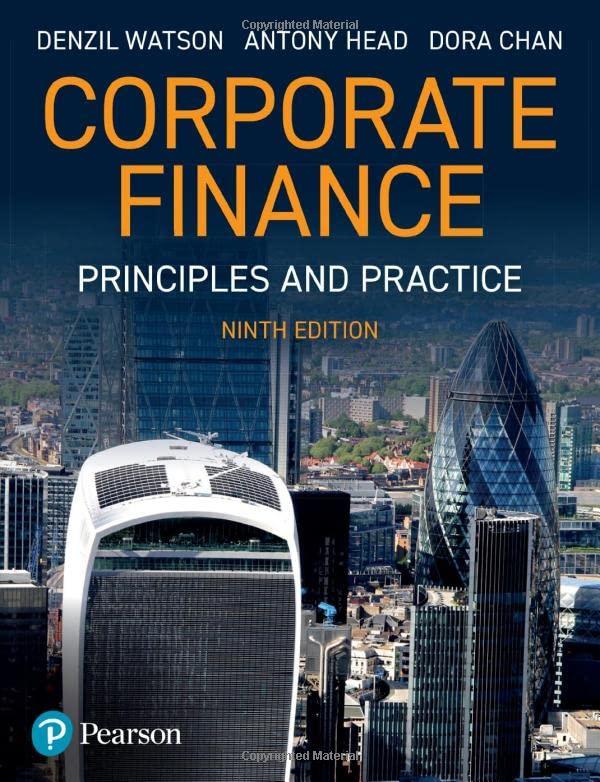UK ministers have launched a consultation into replacing the temporary capital spending allowance that runs out next
Question:
UK ministers have launched a consultation into replacing the temporary capital spending allowance that runs out next year as concerns grow about the impact of fast rising inflation on companies’ ability to invest. The Treasury has asked for views on what business would like to see replace the two year ‘super-deduction’ allowance that ends in April 2023.
The existing scheme offers 130 per cent relief on purchases of equipment, with every £1 invested leading to 25p off the tax bill. Companies have called on the government to come up with a permanent replacement to help support continued investment in the UK. The Office for Budget Responsibility has estimated the temporary measures would cost the taxpayer
£23bn while boosting investment by 10 per cent at its peak in the financial year 2022-23, equivalent to an extra £20bn. However, tax experts have questioned whether the existing scheme has simply brought forward capital spending and have warned of a drop off when it ends.
The CBI business group has forecast that capital spending will fall from mid-2023 as the superdeduction expires and the corporation tax rate rises.
These two factors will reduce business investment as a share of gross domestic product to the lowest level in the G7 and leave the UK 31st out of 37 OECD countries for corporate tax competitiveness next year.
Chancellor Rishi Sunak said the consultation was designed to build on the 'momentum of the superdeduction to drive and sustain growth in the UK,' adding: 'We're committed to doing that through cutting and reforming investment taxes'. Officials want to gauge the importance of capital allowances for companies in taking investment decisions, and specifically how the super-deduction has affected their spending plans.
The document published on Monday acknowledged that the 'generosity of the permanent capital allowances available in the UK compares unfavourably to some international peers'. It cited OECD data showing that companies invest just 10 per cent of GDP each year in the UK, compared with 14 per cent in competitor countries. 'Our tax system doesn't reward investment as much as other countries do,' it admitted.
Options outlined in the paper, included increasing the level of an annual investment allowance or the rates for writing down allowances. Others included a first-year allowances for qualifying expenditure, or a permanent full expensing of 100 per cent on plant and machinery. The latter measure could cost over £11bn a year, the Treasury said, adding that it wanted to know whether this would be the best use of the funds if they were available. The CBI has calculated that a permanent investment deduction could boost UK business investment by up to £40bn a year by 2026.
Emma Rawson, technical officer at the Association of Taxation Technicians, said it was a 'little disappointing' that the document was very 'light on detail' and had not revealed more of the government's thinking. John Cullinane, director of public policy at the Chartered Institute of Taxation, said the Treasury's approach put the onus on businesses to prove how effective any new tax breaks would be.
'The questions really cut to the chase,' he said.
'There is this undertone: are we getting value for money on the tax breaks.' But Anita Monteith, head of taxation policy at the Institute of Chartered Accountants in England and Wales, doubted how much changing the tax system would have an impact on business investment. 'Most businesses spend when they need to and you can influence their spending a bit with the tax rate . . . but I suspect it's at the margins,' she added.
Question
What are the main issues facing the UK government when trying to establish its future policy on capital allowances?
Step by Step Answer:

Corporate Finance Principles And Practice
ISBN: 9781292450940
9th Edition
Authors: Denzil Watson, Antony Head





